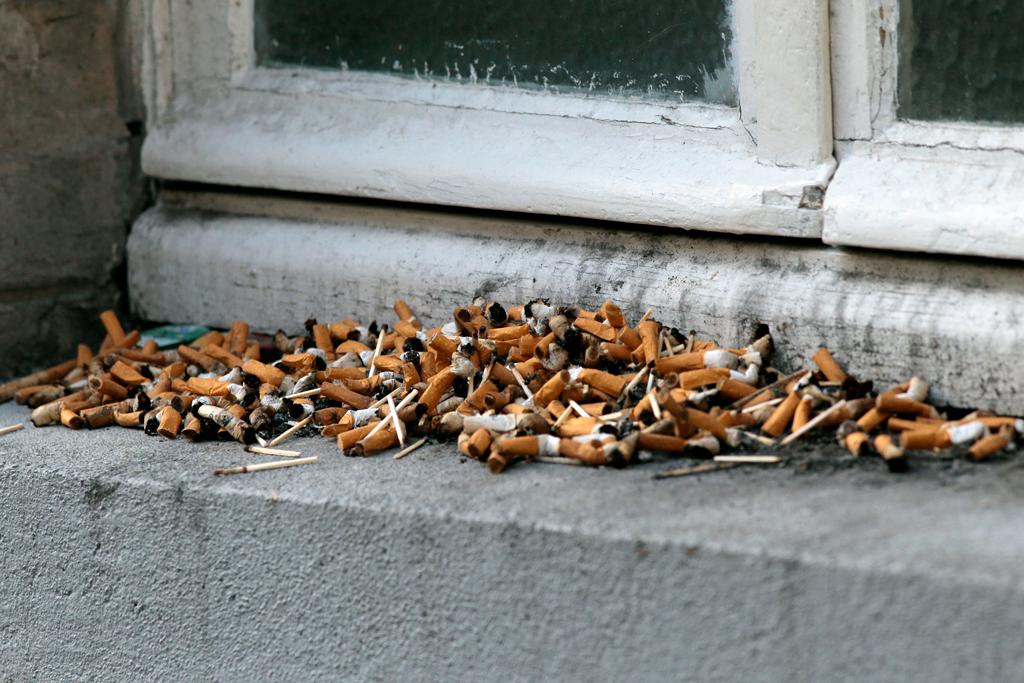Birds use cigarettes to snuff out parasites
This picture taken on Oct. 25, 2012, shows cigarette butts on a window edge used as an ashtray in Paris.
Birds in Mexico City are snuffing out parasites with cigarettes.
Not by puffing away, mind you, but by lining their nests with used cigarette butts, a new sudy published in Biology Letters suggests.
More from GlobalPost: Smoking bad for brain, new study says
According to researchers at St. Andrews University, the nicotine and other chemicals in discarded filters act as a natural pesticide that repels parasitic mites, BBC News reported.
Scientists studied the nests of house sparrows and house finches in Mexico City and found that, on average, the more cigarette butts a nest contained, the fewer parasites.
More from GlobalPost: Quitting smoking by 30 can lower death risk for women
To test the effect, they placed traps in each nest containing cellulose fibers from smoked and non-smoked cigarettes, Nature.com reported.
Fewer parasites were attracted to nests lined with the nicotine-laden smoked butts, according to the study.
Scientific American called the study a "wonderful" example of wildlife adapting to urban environments.
However, the verdict is still out on how this trend may affect the health of Mexico City's birds.
The World is an independent newsroom. We’re not funded by billionaires; instead, we rely on readers and listeners like you. As a listener, you’re a crucial part of our team and our global community. Your support is vital to running our nonprofit newsroom, and we can’t do this work without you. Will you support The World with a gift today? Donations made between now and Dec. 31 will be matched 1:1. Thanks for investing in our work!
